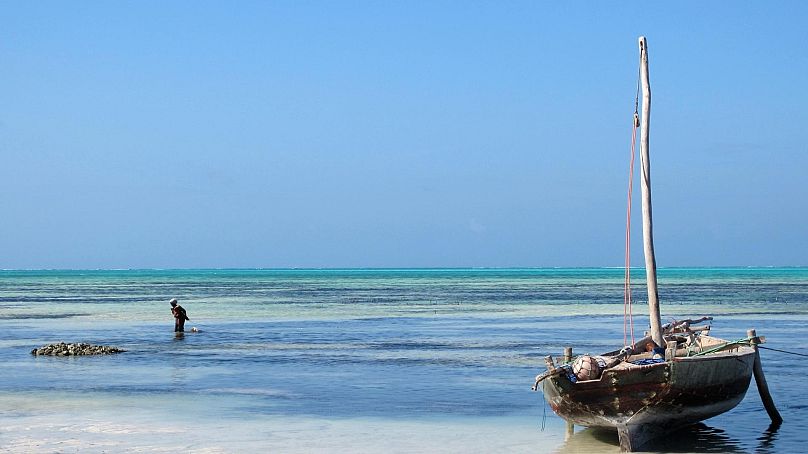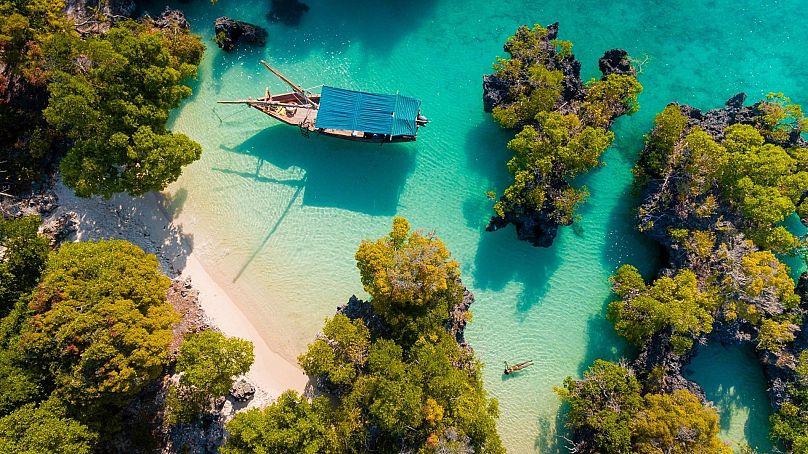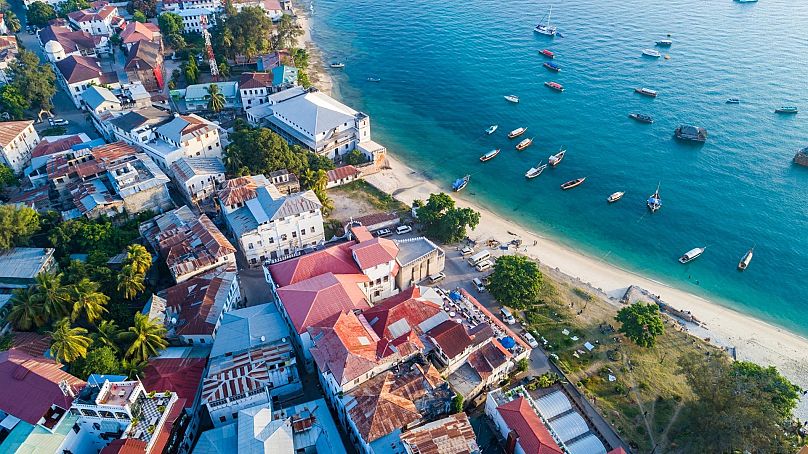As tourism revives in Zanzibar, the island offers its visitors an almost private experience for less money than you'd imagine.
Mohamed climbs up the boat, pops open his Kilimanjaro beer and moves us aside: “Be careful, we are going to pull the spritsail up”. As we start sailing, the last rays of sunlight are fading and scarlet tones grab hold of the sky.
They say sunsets are breathtaking in Zanzibar, Tanzania’s tropical archipelago, but what they don’t tell you is that it's also a party island.
The crew starts playing the bongos, Mohamed shakes the maracas and everyone starts singing a typical Tanzanian song:
Jambo, Jambo bwana, (Hello, Hello sir)
Wageni, Wakaribishwa (Visitors are welcome),
Zanzibar yetu, Hakuna Matata. (To Zanzibar, Hakuna Matata)
There are a couple of Romanians dancing with Burundians, a shirtless banker from Ghana amazed at two Spaniards who are showing him some flamenco moves, and two arrhythmic Indians, clapping while watching the scene.
The atmosphere on the boat is so light and refreshing, we almost forget the pandemic altogether. In fact, there have been no restrictions on the island for the whole of the pandemic, with not a single rule laid down by the government.
So if you’re looking to escape the COVID-19 pandemic, is Zanzibar the place to go?
How to visit Zanzibar on a budget
While five star hotels can cost up to €300 per night in Zanzibar, we managed to find a €40 (per night) bungalow through Airbnb.
Return flights from Barcelona to the island were €600 per person. Bringing the total to just over €800 for ten days in paradise.
We couldn't have asked for a better location. Our apartment sat on the shore of a blindingly white beach with turquoise waters, on a quiet stretch of Zanzibar’s east coast called Jambiani. The area is one of the few unexploited coastlines on the island.
“In a couple of years, Jambiani will look like just another popular beach such as Kendwa and Nungwi in the north of the island," says Ovidiu Bernicu, who is building tourist apartments in this area, after travelling back and forth to Zanzibar for over a decade.
The beauty of Jambiani beach
For now though, there are just a few small fishing boats and a group of Maasai men with their ‘pole pole’ (which means’ slowly’ in Swahili) market, full of traditional beaded bracelets and handmade wooden souvenirs.
The beach was well beyond our expectations.
The first morning we woke up to a low tide, the sea having retreated more than a kilometre away from the shore. At night, the waves were banging the rocks that surrounded our bungalow.
The beach's coral barrier plays with the sea, pushing it in and out. This unique phenomenon takes place three times a day, leaving surprised fish strewn along the sand, searching for survival. During our stay we found starfish trapped under the sand, and placed them in one of the few remaining puddles of seawater.
For anyone who enjoys long walks by the sea, this is the perfect setting. You can feel the breeze of the Indian Ocean on your face, without having to wear a mask.
Is Zanzibar really free from COVID-19?
"There's no corona in Zanzibar. We’ve been praying a lot to keep the island COVID-free" says Simba, the owner of Coco Jambo, a restaurant serving local food in the middle of one of Zanzibar’s best beaches.
Many locals share Simba’s belief, but it is sadly far from reality. Although Tanzania’s mainland has the majority of the country's cases, the archipelago has officially registered 876 cases this summer.
“We’ve seen a rise in COVID cases lately, but Zanzibar can go two months without a single positive case”, declares Doctor Said. It's difficult to find anyone concerned about the virus, even tourists from hard-hit countries ditch their masks as soon as they land on the island.
For over a year, Tanzania denied the existence of the pandemic. Former president John Magufuli was a negationist - a person who denies or refutes something - and in his speeches he assured Tanzanians that praying made the virus go away.
Although he died in March 2021, unofficially due to COVID-19, his words are still deeply rooted in society. Samia Suluhu Hassan, the new president, is having trouble undoing his legacy.
Coping with COVID-19 uncertainties
New coronavirus measures, which have been implemented recently in Tanzania, have led to uncertain official information. For instance, Tanzanian authorities require tourists to show a negative test, at least 72 hours before departing the country, but cannot guarantee your results will be ready in time for your flight.
In the end, if you are a tourist, you will have to pay between €80 and €120, and after specifying the day of your flight, they will make sure you get your certificate in time.
During our stay we didn’t have any problems, but some visitors have encountered difficulties. Florin Bernicu, a Romanian tourist, found out that the hospital had mixed his given name with his wife’s, generating just one negative certificate under an invalid name.
After showing their ID cards and explaining the error, hospital staff said: “Don’t worry” before going to the printing room and returning with two identical certificates, adding “Now you have two”.














